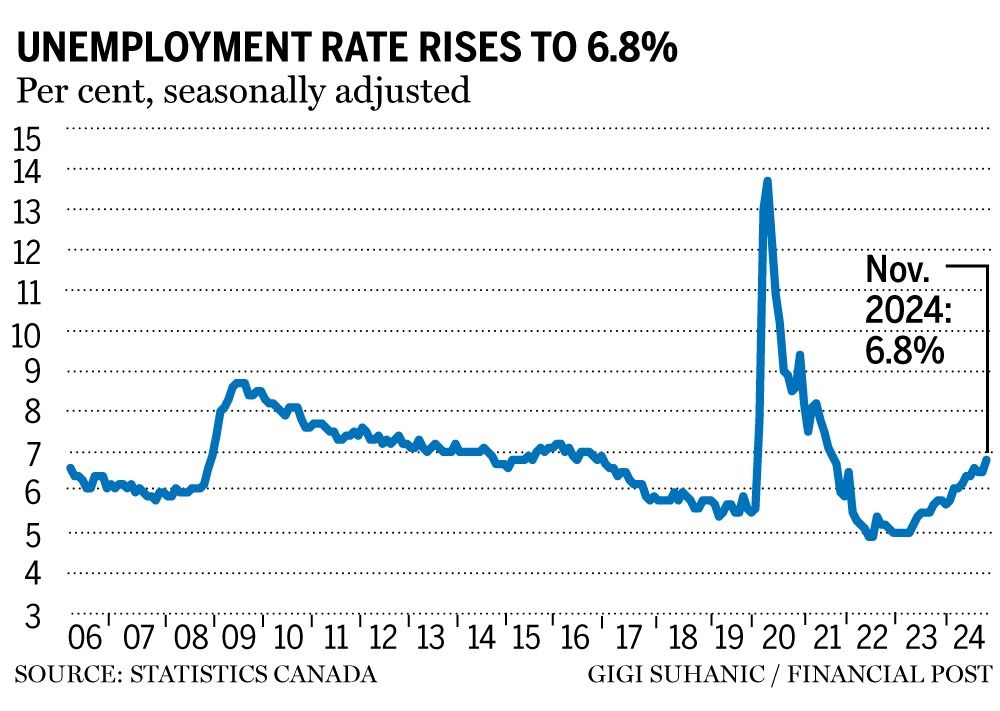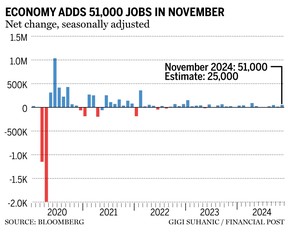Jobless rate at its highest since January 2017, excluding the pandemic

Article content
Canada’s unemployment rate rose to 6.8 per cent in November, raising the odds of a 50-basis point cut by the Bank of Canada next week, according to some economists.
Article content
Article content
Advertisement 2
Article content

Bank of Montreal chief economist Douglas Porter says BMO is now changing its call to a steeper cut, because the high jobless rate provides the central bank with a “ready invitation” to ease quickly.
“When the facts change, we change, and the sharp rise in the jobless rate is a big change, especially after two months of calm,” Porter said, in a note. “To be clear, this is what we believe the Bank will do, not necessarily what we believe that they should do.”
Andrew Grantham, senior economist with the Canadian Imperial Bank of Commerce, agrees that the unexpected increase in the unemployment rate supports a call for a steeper cut by the central bank.

The total number of unemployed persons now stands at 1.5 million, up by 276,000 compared to the same time last year. Nearly half of those currently unemployed have not worked in the last year or have never worked.
Article content
Advertisement 3
Article content
The employment rate held steady at 60.6 per cent, suggesting there are not enough jobs in the economy to absorb the number of people seeking employment.
“November saw the largest rise in job-seekers since the return-to-work era of 2022, far outpacing the capacity of Canada’s sluggish economy to absorb them,” said David Rosenberg, founder and president at Rosenberg Research & Associates Inc., in a note to clients.
Employment rose in several industries, including construction, which added 18,000 jobs after five consecutive months of stagnated growth. Wholesale and retail trade added 39,000 jobs and professional, scientific and professional services added 17,000 jobs. These gains were offset by declines in manufacturing, transportation and warehousing and the natural resources sectors.
Advertisement 4
Article content
“So, we should be taking this with a heavy hand of salt,” said Orlando, in a note. “Rather, we focus on the trend, where employment growth has held up well, with cyclically sensitive sectors driving gains over the last few months.”
Unemployment was up in most of Canada’s major cities, with Windsor recording the highest jobless rate at 8.7 per cent. Toronto (8.1 per cent), Edmonton (8.3 per cent) and Calgary (7.9 per cent) also posted high unemployment.
• Email: jgowling@postmedia.com
Bookmark our website and support our journalism: Don’t miss the business news you need to know — add financialpost.com to your bookmarks and sign up for our newsletters here.
Article content





